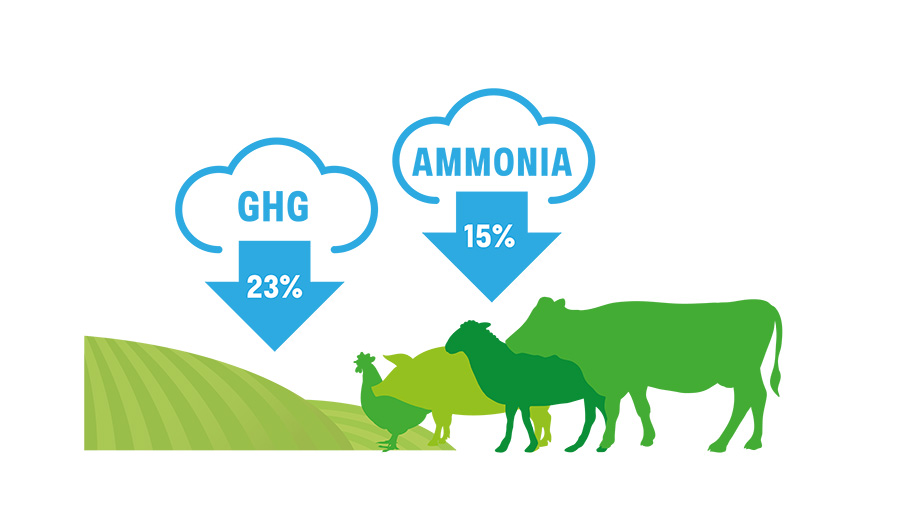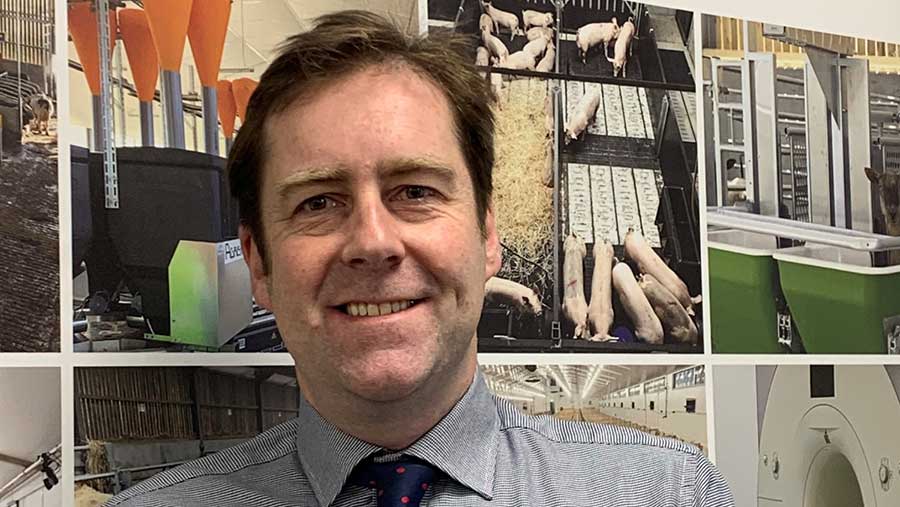Advertiser content
Net zero and livestock: Exploring the farmer options
 © Agri Tech Centres
© Agri Tech Centres Farming is battling a raft of pressures right now, but sustainability challenges will continue, highlights Phil Bicknell from the Centre for Innovation Excellence in Livestock (CIEL), the UK agri-tech centre driving innovation for the livestock sector.
Net zero is a core area of work for CIEL and it’s the golden thread that links several priority focus areas for the livestock supply chain: feed and nutrition, animal health, welfare and resource efficiency.
Sustainability, and specifically net zero, continues to be a focus of research and innovation across the CIEL network.
In 2022, the vast majority of the 26 sites where CIEL has invested in agri-research capability carried out projects related to emissions and the sustainability of livestock systems.
And there’s more in the pipeline – some public-funded, but a big proportion paid for and driven by businesses across the supply chain.

Phil Bicknell, Head of Business Development, CIEL © Agri Tech Centres
It’s vital that this research pipeline continues.
CIEL’s first industry report ‘Net Zero Carbon & UK Livestock’, published in 2020, highlighted that even if we see broad uptake of the technologies available to us right now, we don’t even get halfway to the 2050 net zero ambition.
More broadly, that work established benchmarks for a range of farming systems across the main livestock types in the UK.
With the expectation for the agri-food sector to take positive action around emissions, farmers already have a wide range of options that can help reduce emissions at farm level.
This was explored in CIEL’s subsequent report, ‘Net Zero & Livestock: How farmers can reduce emissions.’
It identified that greenhouse gas emissions could be reduced from the main livestock types by 23% and ammonia emissions by 15% if wide-scale, and highly effective, mitigations are adopted across UK farms.
The first of its kind to model and collate data at this scale, the report covers a range of mitigating scenarios in real-life case studies across dairy, beef, sheep, pig and poultry farms.
It focuses on positive, practical solutions for the industry over headline categories.
The need for improvement in herd or flock production efficiency is one key area highlighted that should be the focus for most farmers in the drive to reduce their carbon footprint.
With input costs being top of mind for many, the potential efficiencies around feed, forage and nutrient management are particularly pertinent.
There’s obviously a range of businesses with different systems, operating in different geographies, and with different challenges.
A single template isn’t going to work for individual farm businesses, but we all have options available.
Next up for CIEL is exploring the new innovations and technologies that can help further progress on the net zero challenge. These will be the focus of a new industry report from CIEL ready in Spring 2023.
Alongside new technologies, we need wide-scale adoption to build on the reductions the livestock sector has already recorded.
The reports commissioned by CIEL aim to provide producers, supply chain partners and policymakers with the information needed to support evidence-based decision making when it comes to farming in a net zero world.
This independent evidence basis is important. Agriculture, particularly livestock production, is not short of rhetoric and opinion when it comes to environmental impact.
But decisions – whether they’re policy, commercial or practical – must be based on evidence.
Provided by
UK Agri-Tech Centre offers a complete life-cycle of support, driving agri-tech innovation and adoption through world-class facilities, expert knowledge and business support, saving you time and accelerating your progress.
